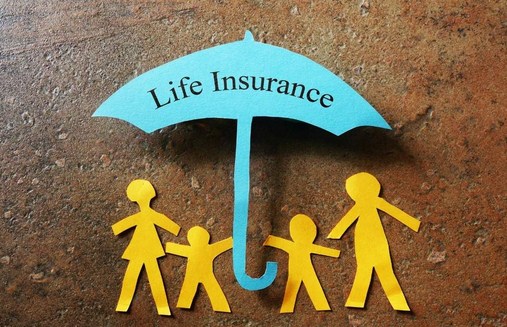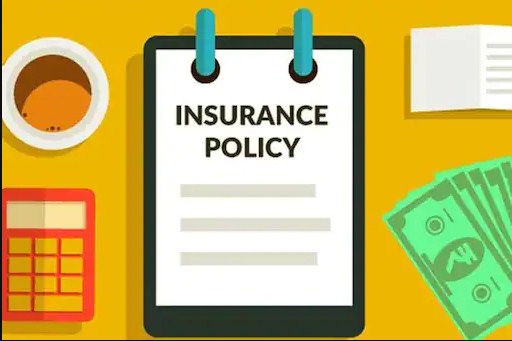If the policyholder dies, and you are not able to locate the life insurance policy, there is no widely compliant database at the state or national level to consult. But to find a life insurance policy, you can find out which company issued the policy or locate the broker or agent who sold or serviced the policy.
Useful Tips for Finding a Life Insurance Policy
You can search for life insurance policies at any storage location such as bank safe deposits and files. Check the address book to locate any name of the agent or company. If you can contact the agent or company that sold other insurance to the decedent, you can probably find out about a life insurance policy.
You can contact a previous employer who may have a record of Group Policy. Check the checkbook and find out if any payments have been made to the life insurance company. You may also see dividend or premium notices. If the policy has been paid, no notice will be given from the company for payment of the due premium. However, the company may send other notices informing about the status of the policy.
To find a life insurance policy, you can approach the respective state insurance departments. The Life Insurance Company Location System helps you find state insurance department personnel and may be able to identify companies that may have worked on the deceased’s life insurance.
You can also check with the state’s unclaimed property office. If the company is aware of the death of the policyholder but is unable to locate the beneficiary, it has to convert the death benefit to the state where the policy was purchased. So you can check any unclaimed money from the state controlling department.
To find a life insurance policy, you can also contact a private service that can help you find lost or misplaced life insurance. There are many companies that charge a fee and do the work of contacting insurance companies and locating the insurer for the deceased on your behalf. This service is also available online. You can also pay $75 to find all applications for individual life insurance processed in the last 12 years. You should know that this amount is for a single search and may not be successful. On average, there is only 1 match every 4 attempts.
Finding a lost life insurance policy is not easy but there are several ways to locate it. Before you give up, focus on them one by one and you can be successful. Insurance companies are willing to pay a reasonable amount to the beneficiary, but survivors must take the responsibility of finding the policy and claiming benefits.
Knowing about Your Life Insurance Policy
Whole life insurance policies may not be something that everyone wants to discuss, these are things that need attention early in life so that no one ends up in a jam when things get to the wire. . A life insurance policy can be a healthy and helpful idea to ensure that everything and everyone is taken care of in the event of your death whether it is planned or taken by surprise.
When people choose to buy a life insurance policy, they usually do so for a number of reasons. The most common reason is that they want to save their family from financial burden after death. While this may sound morbid, it is a generous way of making sure that your family is protected and cared for, which is usually the number one concern on one’s mind.
The next most common reason people get a life insurance policy is the ability to sell it in case of an accident or need some kind of financial financing. If a person becomes ill in his old age with some sort of illness that is most likely to eventually lead to death, there can be many medical expenses that can cause a lot of financial hardship on both you and your family. Huh. If you get a life insurance agreement, it leaves an option for people to be able to meet all the medical expenses.
As far as life insurance policies are concerned, there are two main types of policies that you can buy for yourself or your family. The first type of life insurance is called a term life insurance policy. This type of policy can be very complicated if you do not understand all the terms and conditions of the policy. Term life insurance policies are defined as a policy where the death benefit will be paid only on the death of the life assured during the term of the policy.
If the person dies after the policy is terminated, the policy is deemed to be terminated and there will be no benefit from the policy. These policies can be helpful as their premiums are usually low. One of the problems is that if those individuals survive before termination, the renewal of the policy will be at a higher premium due to the age of the individual. The older the individual, the higher and costlier the policy.
The next type of life insurance policy is a permanent life insurance policy. This type of policy, also known as whole life insurance, basically provides insurance to an individual for his entire life so that his policy never expires. The problem with these types of policies is that they are more expensive than regular term life insurance policies because they do not expire until the person dies when the payments are made. Another issue with these types of policies is that as the insured gets older, their insurance premiums tend to increase as the risk of death increases.
How to Cash In A Life Insurance Policy
The amount available in cash on cancellation of the insurance policy is called the cash value. This cash value is the savings component of most permanent life insurance policies, especially whole life. The seller receives a payment that is higher than the policy’s cash value, while the buying company continues to pay premiums and eventually collects on the insurance payments on the death of the policyholders.
With a policy loan, you can get your cash value and also retain your life cover. If you decide to extend the loan, you will be required to pay interest on the loan at the rate indicated in your policy. Once you have received the insurance policy document, study it immediately, and make sure that the policy is exactly what you ordered. Make sure you are getting the same amount as you have purchased, with the same terms, and at the agreed-upon price. You may get a mix of cash value insurance and term insurance.
This will allow you to get basic continuing coverage with a low-cost insurance term to meet higher coverage requirements for income and larger loans such as mortgages. Expenses associated with the early years of the policy, such as marketing and underwriting, and commissions, usually mean that a cash value policy held for only a few years can be a very costly way to obtain short-term coverage.
There are various tax benefits and benefits of such a policy. You pay no current income tax on interest or other income accumulated in the cash value, pay no income tax if you borrow the cash value from the policy through a loan, pay no income tax on your successor income, and your beneficiaries get the death benefit completely free of cost. income taxation.


